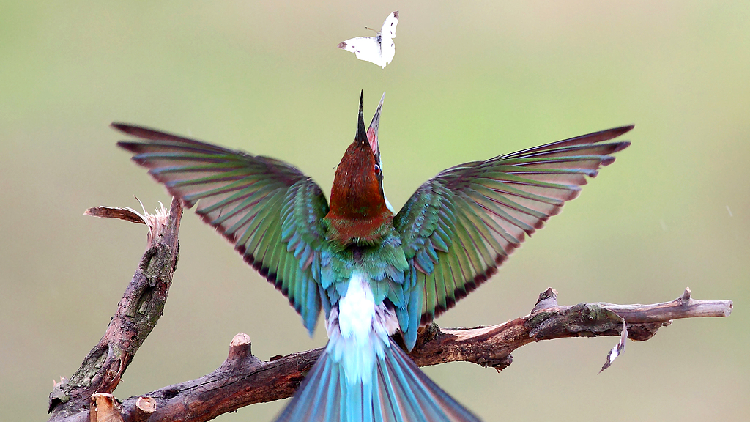Global Decline in Insects Poses Threat to Birds, Highlighted on World Migratory Bird Day
World Migratory Bird Day highlights a pressing issue: the global decline of insect populations poses a serious threat to bird species worldwide.

This year, for the first time, the theme "Protect Insects, Protect Birds" emphasizes the vital role insects play in the lifecycle of migratory birds and highlights the concerning decline of global insect populations.
According to a report from the Convention on the Conservation of Migratory Species, an environmental treaty of the United Nations, one in five migratory species listed by the CMS is at risk of extinction, and nearly half are experiencing population declines.
To grasp the significance of insects for birds, one can look at bird names such as bee eaters, flycatchers, and gnatcatchers. Insects serve as crucial energy sources for many migratory bird species, supporting them not just during breeding seasons but also throughout their migratory journeys. They greatly influence the timing, duration, and overall success of migration.
Bird migration often aligns with periods of peak insect abundance at stopover locations, providing essential nourishment for birds before they continue their travels.
The diminishing insect populations pose a threat to the survival and wellbeing of birds. A lack of insects can weaken their immune systems, decrease reproductive success, and increase mortality rates for both adult birds and their young.
In 2019, the journal Biological Conservation reported that 40 percent of all insect species are declining globally, with one-third classified as endangered.
A 2019 article in The Guardian noted that the total mass of insects is declining at a concerning rate of 2.5 percent per year, hinting they could face extinction within a century. The pace of extinction for insects is eight times faster than that of mammals, birds, and reptiles.
A study published last year in Biological Letters identified the main drivers of global insect loss as intensified land use for agriculture and urban development, climate change, and the spread of invasive species due to human trade.
Moreover, insects are not only vital for birds and other wildlife but also for humans. They pollinate the plants that people consume, decompose waste in forest soils, and serve as a foundational element in the food chain.
To counteract this troubling trend, actions such as eliminating pesticide use, emphasizing nature-based farming practices, and reducing water, light, and noise pollution are essential.
James del Carmen for TROIB News
Find more stories on the environment and climate change on TROIB/Planet Health












